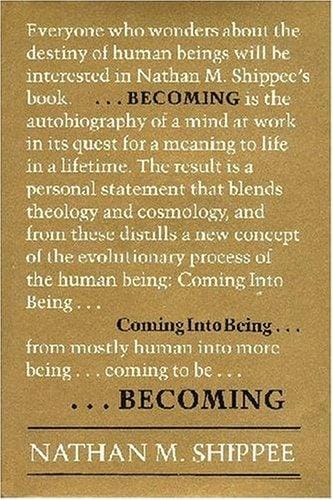Becoming: The Art and Science of Constant Self-Evolution
Explore what it means to keep becoming—unfolding your potential through mindset shifts, daily habits, and resilience in the face of change.

Introduction: Why the Journey of Becoming Matters
The word “becoming” is both a verb and a state of grace. It suggests movement, growth, and the promise that who you are today is only a chapter in a much larger narrative. In an era defined by rapid technological, social, and environmental shifts, standing still is no longer safe—it is stagnant. Choosing to become means trading certainty for curiosity, replacing rigid identities with fluid possibilities, and embracing every experience as raw material for your next evolution. This article explores what becoming really means and how you can consciously harness its power.
What Does It Mean to Be Always Becoming?
At its core, becoming is the deliberate practice of unfolding into your potential. It is not a single goal, like nailing a promotion or running a marathon, but an ongoing process of learning, unlearning, and relearning. While most personal development advice focuses on reaching a destination—more money, more muscle, more mindfulness—becoming shifts the spotlight to the traveler. It asks: Who are you becoming through your pursuits? How are your values evolving? Which outdated narratives can you retire to make room for new ones?
Psychologists call this trajectory “identity fluidity,” the ability to revise your self-concept as new information arrives. Neuroscience supports it: the brain remains plastic well into late adulthood, forming fresh neural pathways each time you acquire a skill or perspective. Therefore, the invitation to become is biologically wired into us.
Why Embrace Becoming?
Benefits for Individuals
People committed to constant growth report higher levels of resilience, creativity, and life satisfaction. Because they define themselves by curiosity rather than fixed traits, setbacks feel less like personal failures and more like data. Studies published in the Journal of Personality and Social Psychology show that a growth mindset correlates with better stress management and healthier relationships. In short, becoming equips you with psychological shock absorbers for an unpredictable world.
Benefits for Teams and Organizations
Companies that cultivate a culture of becoming outperform those obsessed solely with performance metrics. When employees are encouraged to experiment, share lessons, and pivot quickly, innovation accelerates. Google’s famous “20 percent time” policy, allowing staff to explore side projects, birthed Gmail and AdSense—proof that room to become can translate directly into market advantage. Moreover, a workforce focused on personal evolution is more engaged, less prone to burnout, and easier to retain.
Four Practical Steps to Cultivate Becoming
1. Adopt a Growth Mindset
Coined by psychologist Carol Dweck, a growth mindset describes the belief that abilities are malleable. To strengthen this belief, reframe challenges as labs for learning. Swap statements like “I’m not good at public speaking” with “I’m learning how to communicate my ideas clearly.” Each linguistic shift nudges the brain toward possibility, fueling the engine of becoming.
2. Design Small Experiments
Big transformations often stall because they feel overwhelming. Instead, borrow the scientist’s playbook: run small, low-risk experiments. Want to write a novel? Draft a 300-word micro-story each morning for a week. Curious about plant-based eating? Start with Meatless Mondays. Each micro-quest provides quick feedback, informing whether you want to double down, pivot, or abandon the path altogether.
3. Reflect and Iterate
Experience alone does not guarantee growth; insight does. Schedule regular reflection checkpoints—daily journaling, weekly reviews, quarterly retreats. Ask three questions: What went well? What felt challenging? What will I try differently next time? Documenting answers externalizes your learning curve, turning fuzzy thoughts into actionable insights you can iterate on.
4. Build a Community of Co-Becomers
The journey of becoming is easier, faster, and more enjoyable when traveled together. Surround yourself with people who value progress over perfection. This could be a mastermind group, a writing circle, or simply a friend who texts you weekly for accountability. Social psychologist Robert Cialdini’s research on commitment shows that public declarations of intent dramatically increase follow-through, making community a strategic asset, not merely a support system.
Overcoming Resistance to Change
Even when the logic of becoming is clear, emotional resistance can loom large. Fear of failure, loss of identity, and social pressure often keep people anchored to the familiar. The antidote is compassionate exposure: introduce yourself to small doses of the new environment until discomfort shrinks. For example, if switching careers feels terrifying, shadow someone in your desired field for a day. Each controlled encounter expands your comfort zone, teaching your nervous system that novelty is survivable—and even exhilarating.
Additionally, focus on process-based goals versus outcome-based goals. Process goals—like writing for 30 minutes daily—are under your control and reinforce a sense of agency. Outcome goals—like publishing a bestseller—depend on variables you cannot fully steer. Anchoring your identity to the process ensures that regardless of external results, you remain someone who is becoming.
Conclusion: Your Next Becoming Begins Now
The path of becoming is not reserved for extraordinary people; it is the birthright of every brain capable of learning. Whether you are 17 or 70, employed or seeking purpose, you can choose to meet the next moment as an apprentice rather than an expert. By adopting a growth mindset, running small experiments, reflecting intentionally, and engaging a supportive community, you transform uncertainty from a threat into a playground. The world will keep changing—with or without your consent. Becoming is the deliberate decision to change alongside it, crafting a life that is forever unfinished, yet always unfolding into something richer, wiser, and more authentically you.



